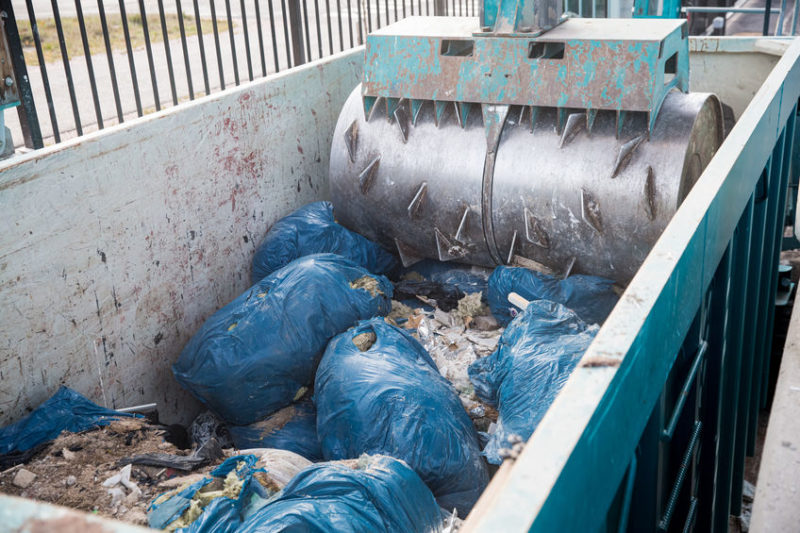 Home improvement projects can generate waste that can be unsightly if left in your backyard. It can also take up extra space that could have been used for something meaningful. A backyard filled with broken furniture, old materials and all kinds of debris can pose a significant danger to the health and safety of you and your family. Fortunately, there are a few ways to get rid of remodeling wastes without violating environmental codes and waste disposal rules set by regulatory bodies in your area. This article looks at how you can dispose of remodeling wastes whether you are doing a partial or full home renovation.
Home improvement projects can generate waste that can be unsightly if left in your backyard. It can also take up extra space that could have been used for something meaningful. A backyard filled with broken furniture, old materials and all kinds of debris can pose a significant danger to the health and safety of you and your family. Fortunately, there are a few ways to get rid of remodeling wastes without violating environmental codes and waste disposal rules set by regulatory bodies in your area. This article looks at how you can dispose of remodeling wastes whether you are doing a partial or full home renovation.
- Donate or Sell Reusable Items
It is possible to end up with some perfectly usable items when doing a full-scale home renovation. Instead of throwing them all in the trash, you can choose to donate or sell them at a lower price. The little money you can make from selling a usable unwanted material can go a long way to help with your renovation. Older appliances that are still working perfectly can be a great deal for someone else even if they do not blend in with your new kitchen décor. Old carpets, countertops, cabinets, and dressers can be donated instead of sending them to a landfill.
- Recycle or Repurpose It
Broken tools or scrap metal can be fused for DIY projects such as garden ornaments. Old bricks can be used as decoration stones for pavements and driveways. It all depends on how creative you can be in making them stand out to improve the aesthetics of your front yard or landscape. Consider repurposing the timber if you are planning to free up some space by tearing down an interior wall. Timber can be used to create a variety of items such as a new cabinet, hall table, outside benches, and other useful items.
- Take Your Renovation Waste to the Dump
Transporting your trash to a landfill can help save money when disposing of your renovation waste. After you have already sorted out what needs to be donated, sold, or repurposed, you can use a trailer or a flatbed truck to dump off what needs to be discarded to your local landfill. It is advisable to sort the materials first before you drive to the landfill. Some landfills have a designated station for disposing of copper, scrap metal, old computers, and large appliances. You can always inquire about this information and other costs that you may be charged when disposing of your wastes to a landfill.
- Use Your Local Garbage Collection Service
If you were doing a small home renovation, then a local garbage collection service can help you get rid of the unwanted materials. It is important to purchase a collapsible trash bin to help you put everything in one place. Once you are done, you can call your local garbage collection service to pick it up for you. However, this option can be a bit expensive since you have to pay for the trash bin as well as the pick-up service.
- Rent a Roll-Off Dumpster
If you are working on a full-scale home renovation then you might consider renting a roll-off dumpster, as it is ideal for bigger remodeling projects. You can choose from a wide variety of sizes depending on the number of wastes to be disposed of and the time for project completion. You need to create enough space for your dumpster if you will be dealing with a bigger project. It is also important to apply for a permit if you intend to put your dumpster on the side of the road. Also, check for any restrictions on the type of materials that can be put in the bin to avoid paying more for violating the policies of a dumpster rental company.
- Hire a Junk Removal Service
A junk removal service is ideal for disposing of bulk amounts of debris, e-waste, and other types of wastes that cannot be disposed of by your local garbage collection service. It is also a convenient option for many homeowners since everything involving removal and disposal is done for you. However, it can become expensive for larger cleanups so it is something you need to consider when deciding between hiring a junk hauling service and renting a dumpster.
The method used in disposing of remodeling wastes will depend on the type and condition of unwanted items. It is always important to separate these wastes based on what can be sold, reused, donated, or trashed. It is important to choose the right method for disposal based on what suits your budget and waste management needs.

